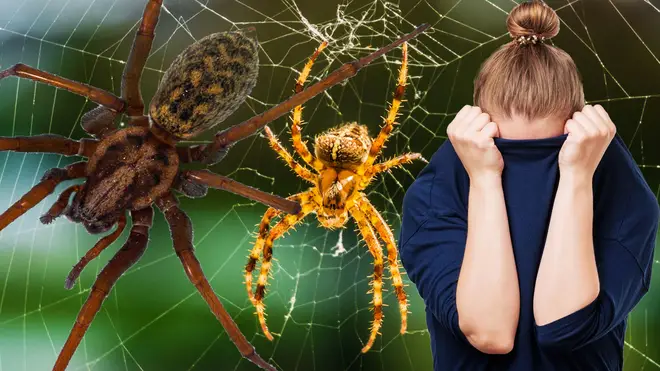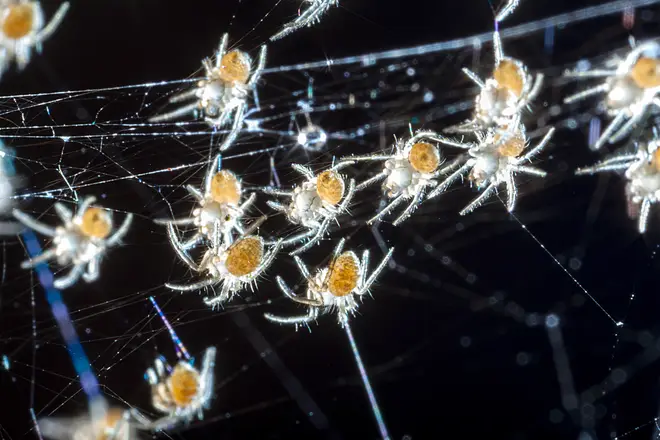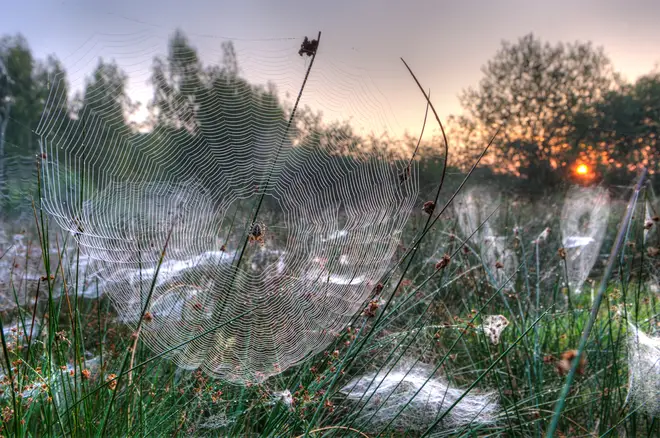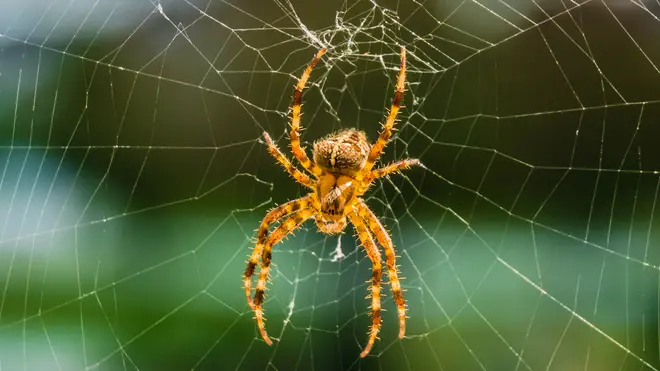On Air Now
Heart Breakfast with JK and Kelly Brook 6:30am - 10am
21 August 2019, 11:27 | Updated: 18 September 2019, 11:29

Spiders living in conditions with freak weather are becoming angrier, and we’re terrified.
A new study has found that areas across the world with dramatically changing weather are having an evolutionary impact on spiders.
In storm-prone regions, colonies of spiders are becoming angrier as the weather changes their habitats on a regular basis.
McMaster University in Canada carried out the study, which looked into the behaviour of female colonies, which usually live in the US and Mexico.

The team observed the spiders before and after a storm over a two day period.
They measured aggressiveness of the spiders by their speed, the amount of attacks on prey and how likely they were to eat the male spiders in their own colony.
These results were compared to other colonies of the same spider who lived in less dramatic weather conditions.
The results of the study found that following a period of dramatic weather such as a topical cyclone, the more aggressive spiders produced more offspring.

The researchers believe that this could be a new evolutionary response the spiders have developed to deal with climate change.
With this in mind, spiders across the world could start producing more aggressive offspring – as this is passed down through generation in spider colonies – due to climate change.
Evolutionary biologist Jonathan Pruitt said: "It is tremendously important to understand the environmental impacts of these 'black swan' weather events on evolution and natural selection.
"As sea levels rise, the incidence of tropical storms will only increase.

"Now more than ever we need to contend with what the ecological and evolutionary impacts of these storms will be for non-human animals."
He went on to explain: “Tropical cyclones likely impact both of these stressors by altering the numbers of flying prey and increasing sun exposure from a more open canopy layer.
"Aggressiveness is passed down through generations in these colonies, from parent to daughter, and is a major factor in their survival and ability to reproduce."
READ NOW: Britain set for spider INVASION as wet weather forces them inside